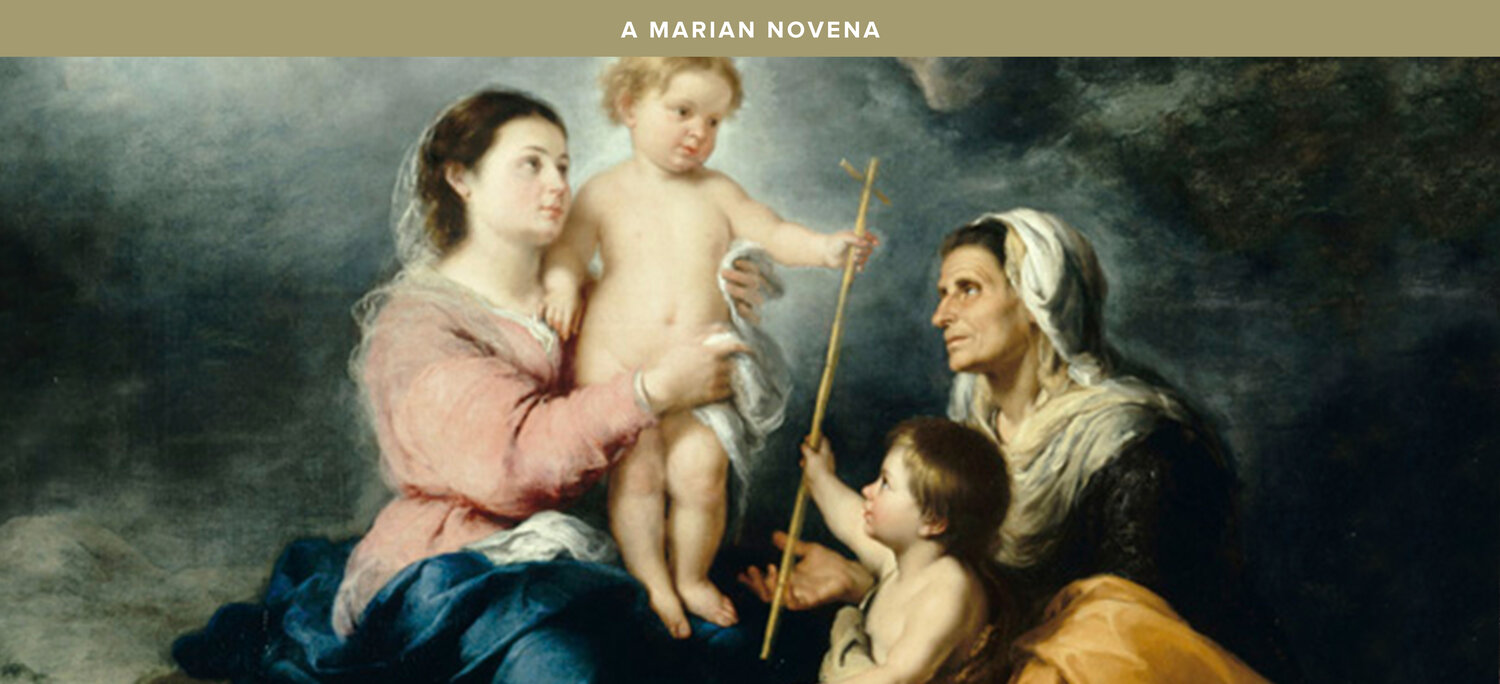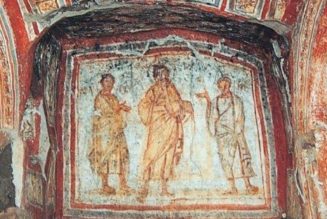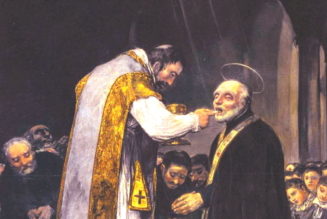
In the name of the Father and of the Son and of the Holy Spirit. Amen.
Sent into the world to be its light, Jesus Christ began to teach men from the moment of his coming. While still in the womb of the Blessed Virgin, without a word and, it seems, without any movement, he spoke. He is the Word of the Eternal Father, and so it is not only all that he does and all that he suffers that speaks, but also all that he is, and in a manner that those who are attuned to the divine mysteries can understand. John the Baptist understood him and leapt for joy. Jesus’ mute eloquence was able to move the heart of a child still in the womb. Let us be attentive to this preaching that does not strike our ears but speaks so powerfully to our spirit.
Grace is never given to us because we have done good works, but rather so that we may do them. Grace is so much in harmony with our best desires that it anticipates them. Grace extends throughout our entire lives, and, over the course of our lives, it always remains grace. It never shows itself to be what it is—that is, grace—more than when it comes to us unlooked for: as when Mary comes to Elizabeth and when Jesus comes to John the Baptist.
We see how Jesus anticipates his precursor; we must also see how he takes the initiative in the life of grace. Our zeal for the salvation of souls is the sign that we have been called. Jesus comes to John, the liberator to the captive. Jesus visits John, because the physician must go to visit the sick. Yet Jesus is in the womb and so is John: it seems that the physician is just as infirm as the patient. Jesus has taken on our infirmities in order to provide the remedy. In a similar way, it is our duty to make ourselves weak with the weak in order to cure them. “Who is weak, and I am not weak?” asks the Apostle, “Who is made to fall, and I am not indignant?” If we wish to know just how far the Apostle descended in order to make himself weak with the weak, we must remember that he lowered himself to the point of giving milk to children: “We were gentle among you, like a nurse taking care of her children.” Just as a nurse or a mother kneels down to be near the child and modulates her voice, departing from her normal way of speaking so that the child will be comforted, so also should we dispose of our eloquence in the service of our neighbor.
Mary and Elizabeth embrace and greet one another. The Law honors the Gospel by predicting it, the Gospel honors the Law by fulfilling it: this is their mutual greeting. Let us listen to their holy conversation. “Blessed are you among women.” O Church, O society of the faithful, assembly blessed among all those of the earth: you are singularly blessed because you were uniquely chosen. “Blessed is she who believed,” said Elizabeth to Mary, and with good reason, for faith is the source of all graces.
We must therefore confess that we are a work of mercy: our sacrifice is Eucharistic, a sacrifice of thanksgiving. This was the sacrifice offered by John the Baptist. In leaping for joy, he gave thanks to the Liberator. If he caused John to leap for joy by means of his presence alone, what will it be like in heaven when we shall see him face to face? John was in his mother’s womb and was able to sense Jesus who was in his mother’s. Jesus comes to our very selves; let us not be unaware that he is with us.
Hail Mary, Full of Grace, the Lord is with thee. Blessed art thou among women, and blessed is the fruit of thy womb, Jesus. Holy Mary, Mother of God, pray for us sinners now and at the hour of our death. Amen.
Almighty ever-living God, who, while the Blessed Virgin Mary was carrying your Son in her womb, inspired her to visit Elizabeth, grant us, we pray, that, faithful to the promptings of the Spirit, we may magnify your greatness with the Virgin Mary at all times. Through our Lord Jesus Christ, your Son. Who lives and reigns with you in the unity of the Holy Spirit, one God, for ever and ever. Amen.
In the name of the Father and of the Son and of the Holy Spirit. Amen.







